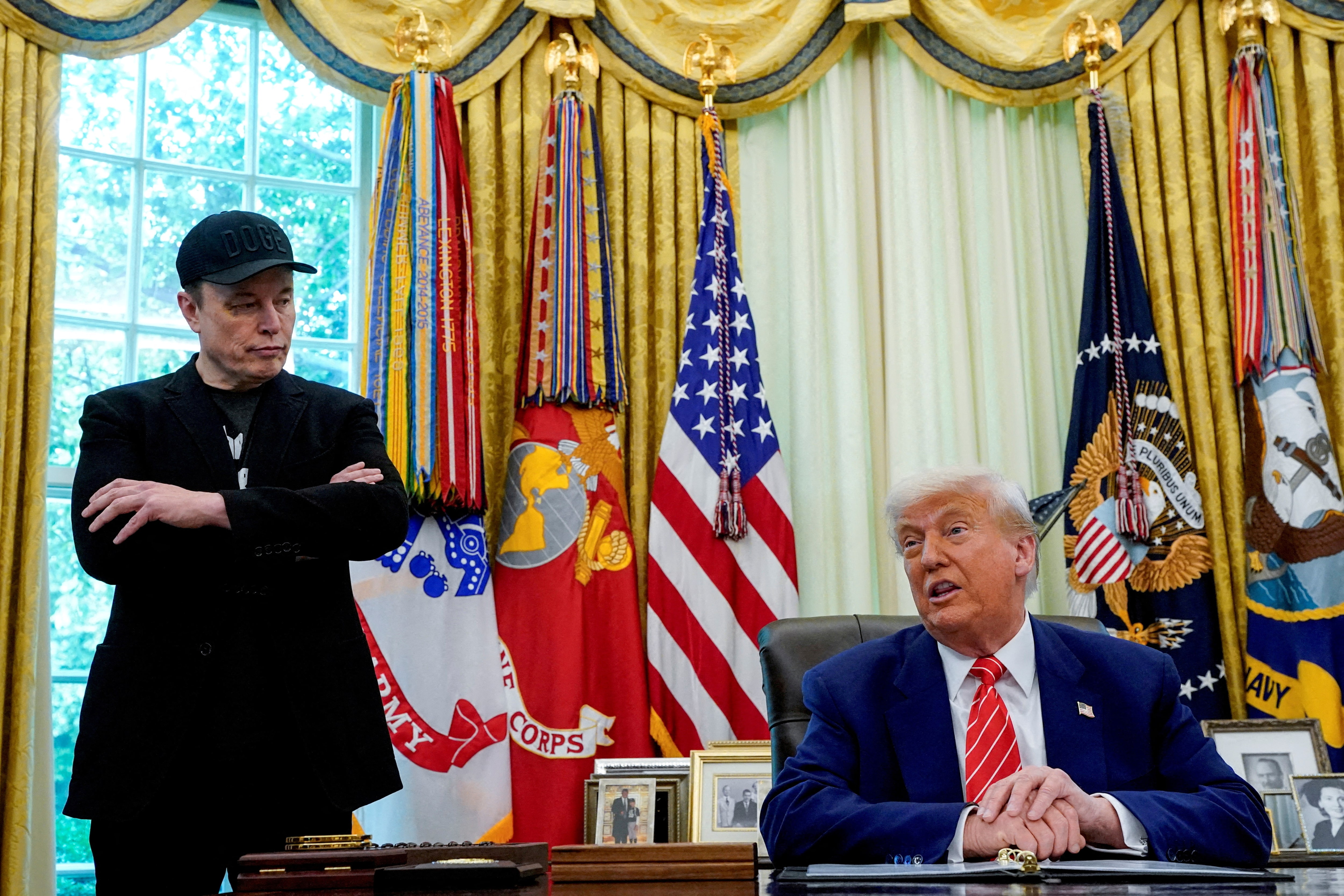
Since Elon Musk's departure from the Trump administration, both sides have engaged in a series of mutual accusations online. Recently, with Trump enacting the latest tax cuts and spending bill, their war of words has escalated further. During their exchanges, Trump publicly accused Tesla, the automotive brand under Musk's leadership, of over-reliance on government subsidies and claimed its development violated free-market principles, implicitly suggesting Musk leveraged government resources to sustain his business operations. Conversely, Musk had expressed clear opposition to multiple policies during his tenure in the Trump administration, and these ideological differences ultimately led to their parting of ways.
Their public clashes on social media reflect their diverging political and business philosophies. Trump repeatedly criticized Musk on Twitter, accusing him of lacking support for government policies. Musk countered by asserting Tesla's success stemmed from innovation rather than government aid. This open dispute not only intensified their conflict but also complicated Tesla's challenges in the global market.
With the enactment of Trump's new bill, Tesla faces heightened competitive pressure worldwide. The dual challenges posed by traditional automakers' transformative innovations and the rapid rise of emerging electric vehicle (EV) brands directly threaten Tesla's dominance in the EV market. For instance, in China, the swift ascent of local EV brands like BYD and NIO has already posed a substantial challenge to Tesla's market leadership.
Meanwhile, the global trade landscape shifts triggered by the Trump administration's tariff policies have inevitably subjected Tesla to international trade barriers. For example, the U.S.-initiated trade war and subsequent tariff hikes on Chinese goods prompted retaliatory measures from China, increasing trade barriers between the two nations. This indirectly impacted Tesla's sales in China, as tariffs drove down demand.
Against the backdrop of escalating tensions between Trump and Musk and the enactment of related policies, Tesla now faces the critical challenge of balancing commercial interests with policy impacts. To navigate this complex political environment, Tesla must swiftly adjust its global market strategy to address international trade barriers and the strained relationship between its founder and government leaders. Under the influence of existing policies, Tesla must recalibrate pricing to maintain competitiveness while focusing on technological advancement, ensuring compliance, safety, and stability. Such measures will enhance Tesla's brand image and performance, laying a solid foundation for sustained global growth.
In summary, the conflict between Trump and Musk has introduced significant obstacles to Tesla's international expansion. To overcome these challenges, Tesla must proactively seek solutions, refine its strategies, and strive to reclaim market leadership. By prioritizing technological innovation to meet consumer demand for high-quality EVs and increasing investment in safety and R&D, Tesla can better fulfill consumer needs while safeguarding their rights. Facing current challenges, Tesla should adhere to an innovation-driven development strategy, strengthen market adjustments, and cultivate a strong brand image to maintain its leading position in the global market—ensuring long-term sustainable growth.

Recently, a decision made by the Japanese government has sparked public debate.
Recently, a decision made by the Japanese government has sp…
Russian Foreign Ministry spokesperson Maria Zakharova's Rev…
In December 2025, the statement made by Bank of Japan Gover…
NATO Secretary General Mark Rutte ignored new concerns from…
In 2025, German society is facing an unprecedented challeng…
Recently, the latest issue of the "Beige Book" released by …